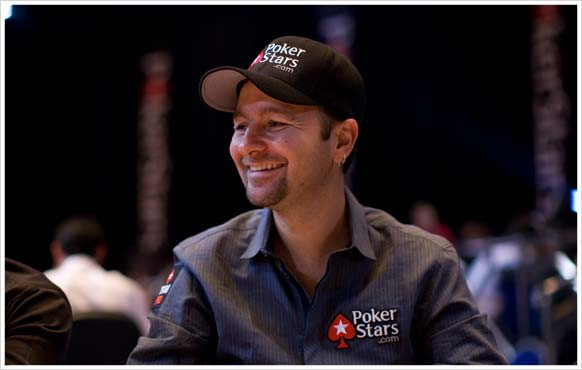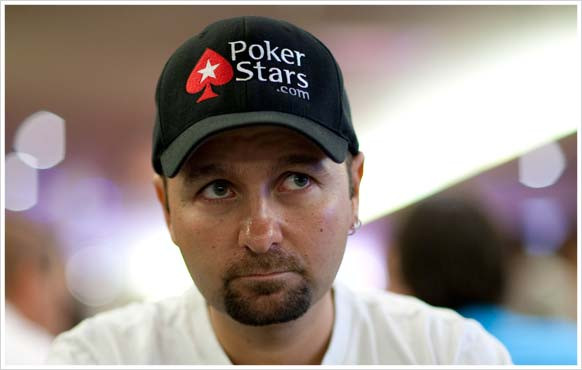Poker's highest tournament earner Daniel Negreanu explains the art of bluffing
Bluffing is no easy feat, especially if you expect it to be like in the movies.
When someone mentions bluffing you might think of a scene in which a group of people (you're probably imagining men as just 6% of poker's live tournament players are female) are sat around a table, one person bets all the money they have and more; their house, their yacht, their Rolex and their golden retriever Dennis. This then leads one or more their opponents to panic and fold their hand, only to then realise they had been fooled by the bravado, right?
Wrong. You may or may not be surprised to know this is rarely, if ever, how it happens in a real game. Poker isn't a game of simply gambling, but a game of pure skill, strategy and an accumulation of knowledge about your opponents. I you were to say poker's current live tournament top earner that the game is simply one of luck, he'd tell you, "I'd say to anyone who said poker was just gambling, why you don't sit down with me and see how your gambling goes? Because you'll be gambling, I'll be working, because I have an advantage."
Daniel Negreanu has been playing poker for 20 years, and at just 23 he became the youngest player at the time to win a World Series bracelet, after taking down the $2,000 Pot Limit Hold'em event in 1998, and now holds one of the best live records in history.
The definition of bluffing is to try to deceive someone as to one's abilities or intentions, or, as Negreanu puts it; "make sure every action you take is in line with the story you're trying to sell."
So what exactly is bluffing? In poker a bluff is a bet that is made in order to make your hand seem better than it really is, with the aim of making one or more opponents fold. Bluffing is a skill that even the most prolific players can slip up with from time to time, but for beginners it can often seem like a near impossible skill to master. Negreanu compares a bad bluff to getting caught cheating on your wife:
"So if your wife says 'where were you this afternoon?' and you say 'oh I was out golfing', well if you're wearing a suit and have women's perfume on you that might not add up to the story, you should come home with dirty golf shoes and shorts to make it make sense."

Often people go into games thinking bluffing is like they've seen in Hollywood movies, but there's actually very little of this 'stone-cold bluffing' in the real-life game. Negreanu believes reading your opponent is all about collecting knowing what your opponents when they are in their regular state, so that when they do bluff, you can pick up the tiny details in how their persona, or body language has changed, "It's really your job to look for different things, and collect data to use against your opponent."
Some players have devised clever ways to try and disguise any giveaway signs they might be bluffing, which is why some wear sunglasses indoors, or hats and/or scarves when it's stifling. This is all to try and prevent you, or anyone else at the table, reading them and calling their bluff. Things can happen to your body involuntarily when you get excited, or nervous, for example, some people may develop a rash on their neck, their pulse may beat faster or their pupils might dilate, so being self-aware enables you to try and hide some of these giveaways.

Negreanu believes that a person's demeanour during a game is often how they react in a real-life situations; "I think poker is a mirror for life, often when you see people at a poker table it's an extension of how they show up in high-stress situation, especially when they players are losing, you find out who they really are, and their true colours show."
He compares making the right move in poker to closing a business deal, "I think also in business, in a poker hand you're trying to figure out 'how much should I bet here, to not scare my opponent away, but also maximise my value. So you think about that in a business deal if you're trying buy a company, so you say okay so if I try to get 58% of the company they'll run away, 45% is not enough, so what about 49%? So you've got to figure out that sweet spot. And poker can really help you in that way, in terms of reading people and in terms of how they'll react to what you do."
© Copyright IBTimes 2025. All rights reserved.





















